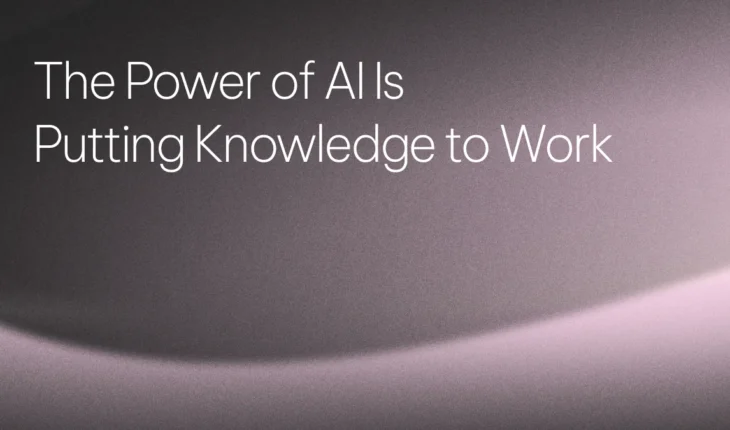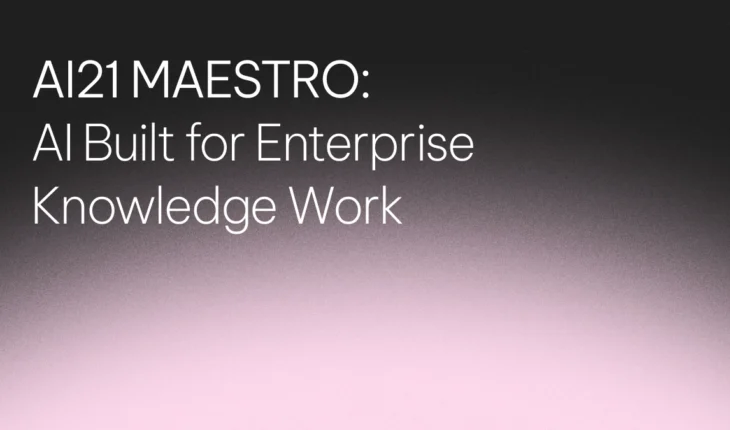Table of Contents
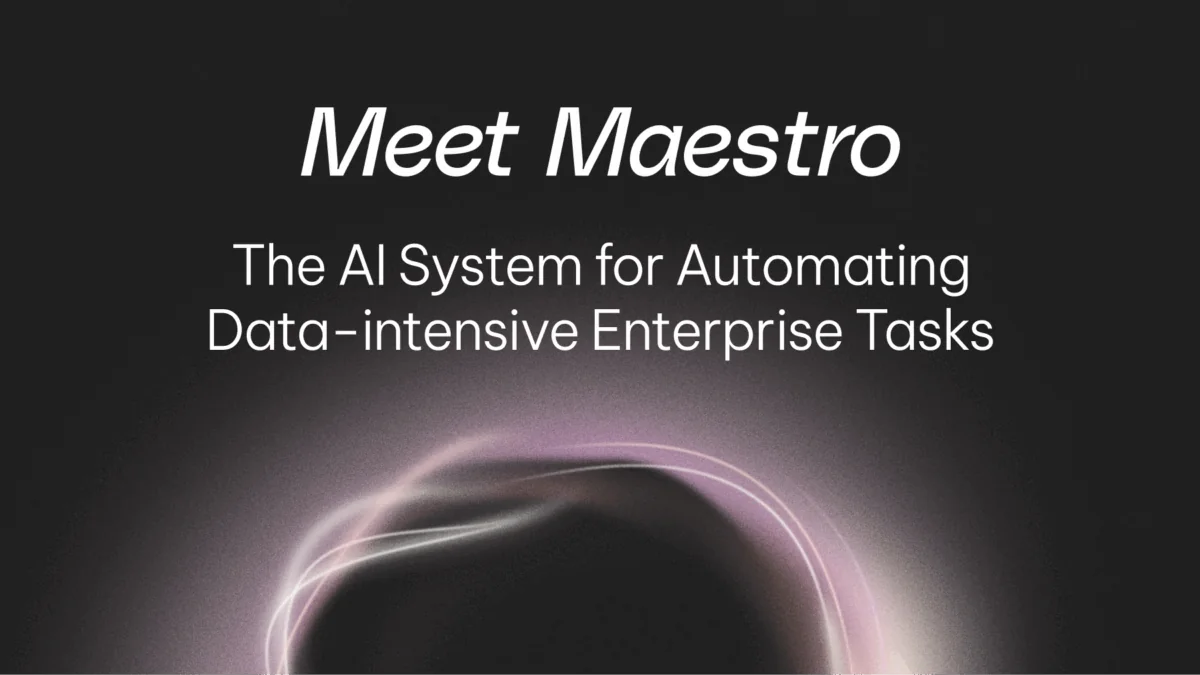
Meet Maestro: The AI System for Automating Data-Intensive Enterprise Tasks
AI in the enterprise is at a turning point. While organizations recognize its potential, most attempts to deploy generative AI fail. According to AWS, only 6% of organizations have a generative AI application in deployment. The reason? The probabilistic nature of language models makes their behavior inherently unpredictable, creating a major challenge for enterprises to build trustworthy AI systems.
We’re changing that with Maestro, the first AI system for automating data-intensive enterprise tasks designed to deliver enterprise-grade AI that organizations can actually trust. Maestro overcomes the limitations of LLMs and Large Reasoning Models (LRMs), delivering reliable, controllable, and transparent AI that solves complex tasks.
The Problem: Why AI Adoption Stalls
AI adoption isn’t failing because enterprises lack ideas. CTOs and business leaders see countless opportunities for transformation—automating workflows, analyzing complex data, optimizing operations. But existing AI approaches don’t deliver the accuracy and reliability required to make these solutions work.
Today’s alternatives? Prompt-and-pray or rigid, hard-coded chains—neither of which are viable for enterprise-grade AI:
- Prompt-and-Pray: Companies can rely on LLMs or LRMs to perform as instructed, throwing open-ended tasks at them and hoping for the best. The result? AI that lacks control, reliability, and accountability—especially in complex, multi-step workflows where errors compound. Probabilistic models struggle in large, environment-specific action spaces, making their performance unpredictable and unreliable.
- Hard-Coded Chains: Developers build static workflows that dictate every step of a process, with validation and error-handling baked in. While this ensures some reliability, it’s rigid, brittle, and labor-intensive—requiring constant re-engineering to adapt to changing conditions. For some use cases, this approach is good enough, but it’s extremely difficult to build and, as a result, very few AI solutions actually make it to production.
Even reasoning models, designed to generate chain-of-thought processes, fail to solve these challenges. They struggle with tool use, produce inconsistent results, and remain unpredictable, especially in large, environment-specific action spaces. Early enterprise experimentation shows that they fail to escape the ‘prompt-and-pray’ paradigm, signaling the need for a fundamentally different approach.
The Solution: AI That Plans, Executes, and Validates
Maestro is an AI planning and orchestration system that enables structured planning for complex tasks, bringing intelligence to the AI system level by using LLMs, LRMs, and other resources as tools. Unlike reasoning models, it systematically analyzes alternative courses of action, evaluates their expected success rates and costs, dynamically creates and executes plans in real time, and validates results against user requirements. Maestro ensures full control, reliability, and observability—transforming AI from an unpredictable tool into a trustworthy enterprise-grade system.
AI You Can Actually Trust
- Deliver Accuracy in Every Result: Maestro intelligently scales inference-time compute, selecting the best models and tools while rigorously verifying outputs against user requirements to deliver results with high-accuracy—all while adhering to defined latency and cost limits.
- Accelerate Deployment: By automatically creating tailored plans to solve each task, Maestro accelerates the time from development to production, reducing the effort required to build trustworthy AI solutions. Simply define your requirements, connect tools, set the budget, and let Maestro handle the rest.
- Adaptive AI for Your Data Environment: Maestro is designed to learn each unique enterprise environment—running offline simulations to explore alternative courses of action, predicting expected success rates and costs, and finding the most effective execution strategy for your use case at runtime.
- Full Transparency: Maestro gives users full visibility into task execution with an execution trace, providing a step-by-step view of how tasks are carried out. A validation report details whether predefined requirements were met. This ensures organizations can monitor, adjust, and trust AI-driven decisions with complete transparency.
Let’s break from talking about Maestro, and just watch it in action. See how the system handles a complex task with multiple requirements:
Measuring Maestro: How It Stacks Up
These capabilities aren’t just theoretical—Maestro delivers a measurable accuracy leap across leading LLMs and reasoning models.
On IFEval, Maestro significantly enhances LLM accuracy, improving GPT-4o from ~85% to 91.9%, Claude Sonnet 3.5 from ~88% to 95.2%, and o3-mini from ~92% to 95.7%.
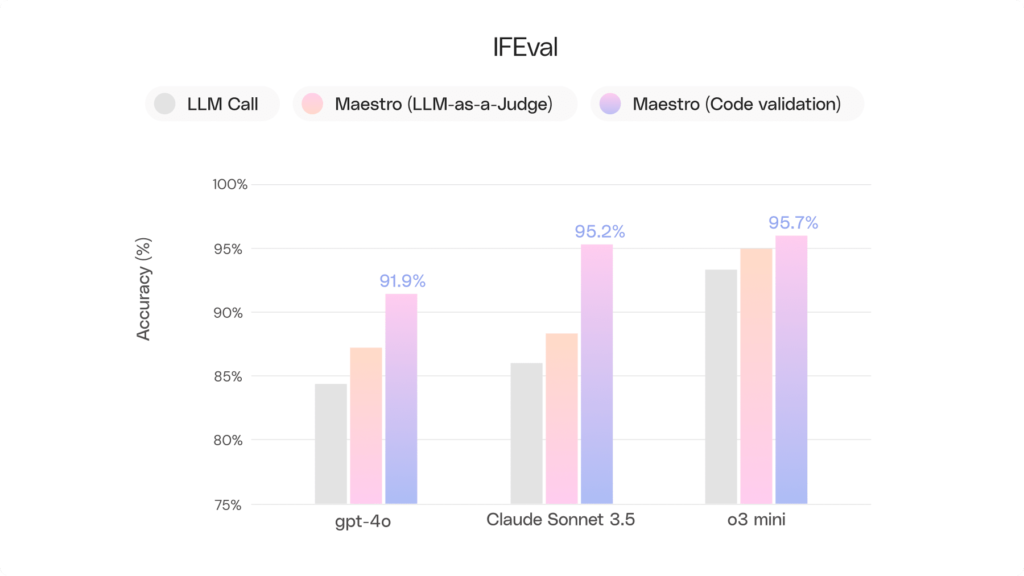
On a challenging benchmark for generation with multiple requirements, Maestro boosts the accuracy of models like GPT-4o and Claude Sonnet 3.5 by up to 50% and enables reasoning models such as o3-mini to exceed 95% accuracy. Maestro also bridges the gap between non-reasoning and reasoning models, bringing Claude Sonnet 3.5’s accuracy in line with advanced reasoning models like o3-mini.
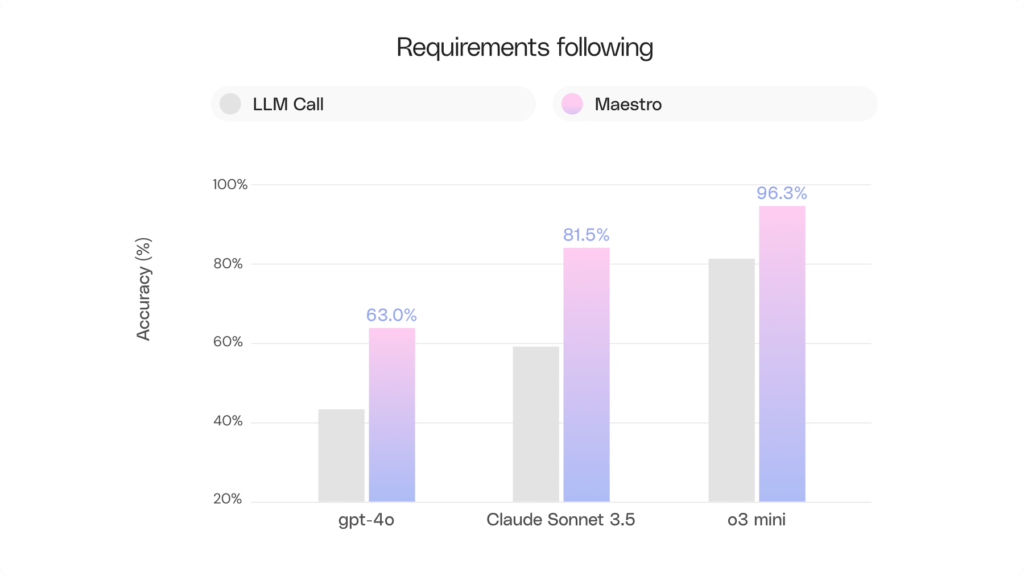
On the FRAMES benchmark, Maestro achieved 75% accuracy—well ahead of OpenAI’s Assistant API (69%) and ReACT with LlamaIndex (59%), all running with GPT-4o as the underlying LLM.
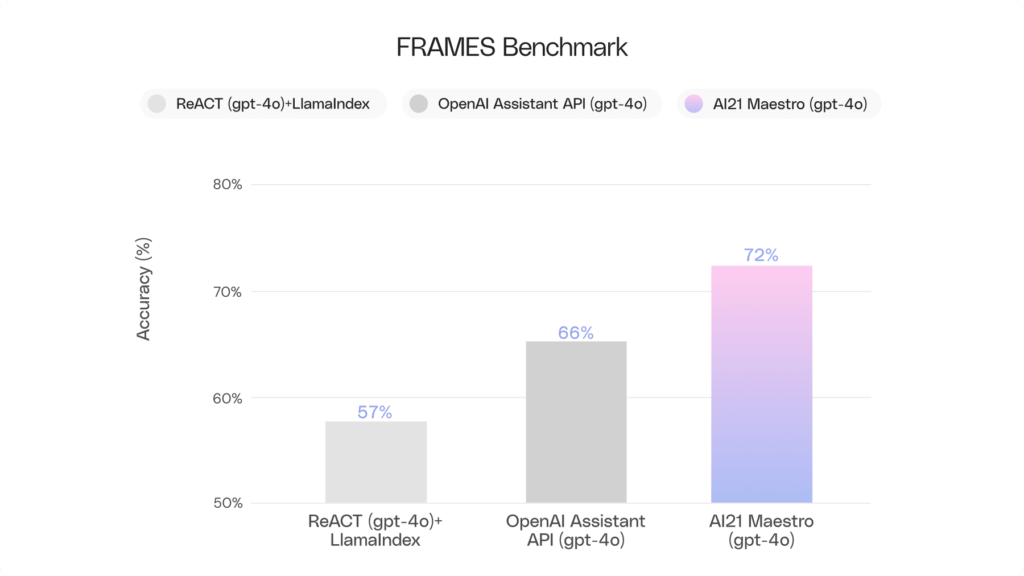
Our Vision: Moving Beyond Thinking Tokens
“Mass adoption of AI by enterprises is the key to the next industrial revolution,” said Ori Goshen, our Co-CEO. “With Maestro, we’re delivering AI that enterprises can finally trust. It’s a fundamental shift—from probabilistic outputs to AI that plans, executes, and validates with precision.”
Instead of just relying on unpredictable LLM outputs or labor-intensive hard-coded workflows, Maestro lets builders define their requirements while the system handles the rest. In seconds, it delivers results that meet user requirements, with built-in validation ensuring quality and control.
This is the next frontier of AI: an intelligent AI system that orchestrates complex tasks with reliability, observability, and control.
“Maestro ushers in a new era of agentic AI – striking a necessary balance between quality, control, and trust that could be a key factor in our ability to develop trustworthy AI applications at scale,” said Avishai Abrahami, CEO of WIX
Join The Waitlist for Early Access
Maestro is coming soon. Developers can request early access by joining the waitlist at ai21.com/maestro. Public availability via SaaS and VPC is planned for later in 2025.
The era of “prompt and pray” is over. Now’s the time for AI you can actually trust.
